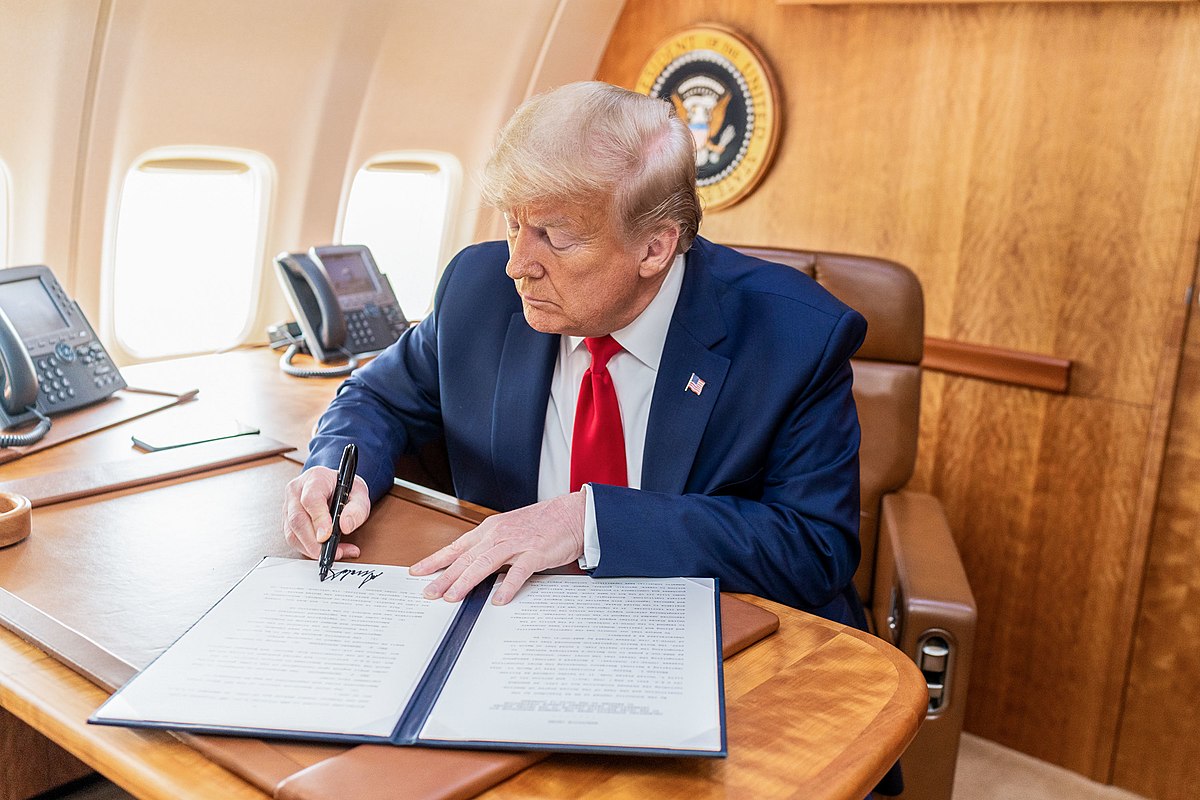- 14 3402-5578
- Rua Hygino Muzy Filho, 737, MARÍLIA - SP
- contato@latinoobservatory.org
 The White House from Washington, DC
The White House from Washington, DC
President Donald Trump signed an executive order ordering the end of a humanitarian parole program implemented during the Biden administration, which allowed the temporary entry of more than half a million migrants from Cuba, Haiti, Nicaragua and Venezuela, according to NPR. The measure is part of a broader policy by his administration to restrict immigration and tighten border control, claiming that mass migration poses a threat to the safety and well-being of American citizens.
The program, created in January 2023, offered a legal alternative for migrants from these countries in crisis, allowing them to apply for entry into the United States without having to cross the border illegally. To qualify, a sponsor residing in the U.S. and passing a background check was required. Beneficiaries were allowed to stay in the country for up to two years, as well as obtaining work permits and protection from deportation. Since its implementation, the initiative has been credited with significantly reducing the number of illegal crossings at the border with Mexico.
Trump's decision raises uncertainty about the future of the hundreds of thousands of migrants still living under that status. The Biden administration had already paused the program due to fraud concerns, and in October announced that it would not renew the legal status of beneficiaries, requiring them to seek other avenues for regularization. Now, with the definitive closure of the initiative, many are at risk of being undocumented or facing deportation.
While the executive order reinforces Trump's
restrictive approach to immigration, it also marks the dismantling of a policy
that aimed to provide a humanitarian response to crises in migrants' countries
of origin. The decision could impact both immigrant communities and the
political and legal landscape of immigration in the United States.











